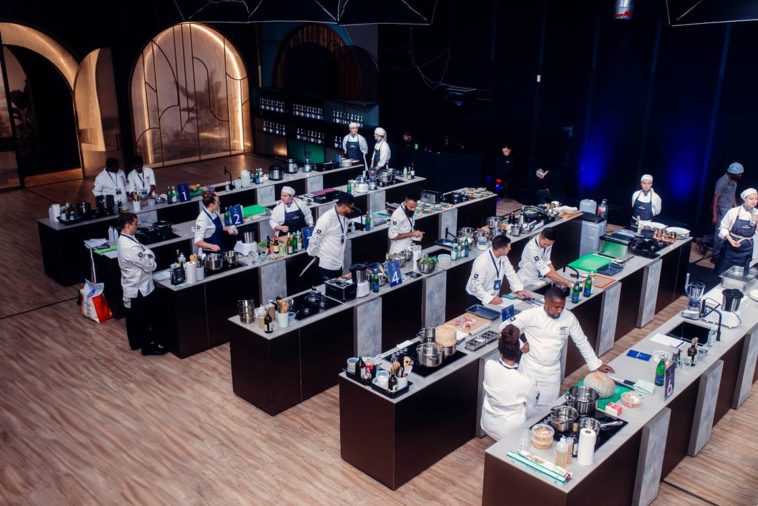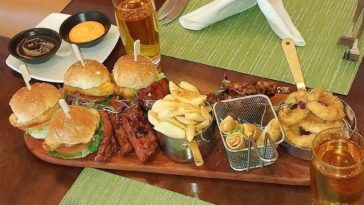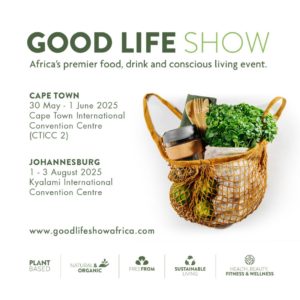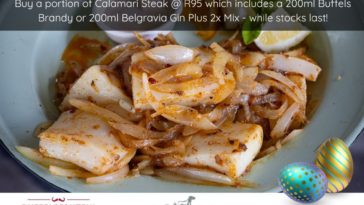The calibre of chefs gathered in one room at the S.Pellegrino Young Chef Academy regional finals in Cape Town in November 2024 reflects a competition that resonates on the world stage.
As the competing young chefs focus intensely on creating their signature dishes in the five hours allocated, the mentors at their side read like a who’s who of the restaurant scene of the vast region, which encompasses Africa, the Middle East and South Asia: there’s Johannes Richter of The Living Room at Summerhill (in KwaZulu Natal), Fabio Daniel of Rust en Vrede (in Stellenbosch), Gregoire Berger of Ossiano, Saverio Sbaragli of Michelin star Al Muntaha, Daniel Birk of 2 Michelin star Row on 45 (the last three in Dubai).
Overseeing the whole competition is the esteemed jury of celebrated chefs and restauranteurs: Bertus Basson (South Africa), Akmal Anuar (Dubai) and Roaya Saleh (Bahrain) who have the unenviable task of identifying the winner from among the fifteen creative and talented young stars currently cooking up a storm.
- The S. Pellegrino Young Chef Academy is about far more than simply picking a winner. The whole event is structured with a view to the future of gastronomy. Young chefs taking part are challenged to push their creativity, their technique, their connection. They get to meet competitors from other countries and their mentors, exchange ideas, attend forums, network, socialise. Over the course of the intense two-day journey they expand their horizons immeasurably.
Sustainability
A common theme that emerged as the contestants presented their dishes to the jury was their consciousness of reducing waste in the kitchen. A number of beautifully conceived and presented dishes were built on the concept of using the whole animal or, in the case of Stefano Maffioli Ferrari’s vegetarian celeriac dish, the whole vegetable. And it is clear from their presentations this comes from a genuine belief and food philosophy, not just a superficial bid to earn the S.Pellegrino Social Responsibility Award, an extra award especially designed to encourage, support, recognise and celebrate sustainability practices within the next generation of influential chefs, with a view to building a better food system for everyone.

A sense of connection
One of the intangible ingredients that that jury are looking out for is a sense of connection in the dish – connection to culture, to heritage, to a sense of place. Their questions to the young chefs as they took turns to present their dishes asked about the why of the dish as well as the ingredients and technique that went into it. What story is it telling, how does it represent the chef’s identity, how does it connect the diner with a place and time. The message is clear – good food isn’t only about impeccable technique (although that is of course important and was commended by the jury) today’s diner wants food that they can connect with emotionally in some way. Jury member Roaya Saleh commented with feeling on what was eventually revealed to be the winning dish, “You feed all of my senses.”
Connection to the land
Indigenous ingredients, unusual ingredients from a particular culture or cuisines, and locally sourced produce and meats are another theme that emerged as vital to growing our dining future in the direction of sustainability. We tasted amatungulu (Natal coastal plum) with duck and sweet potato in overall winner Luckson Mare’s dish, the indigenous wild plum foraged for him by his mentor, Johannes Richter. The jury was struck by the innovative method and the use of black lemons in Robin Hofer’s lamb dish, which won him the Acqua Panna Connection in Gastronomy Award; and Zante Neethling’s use of indigenous South African healing plants in her tribute to the women of the Khoi-Khoin is one of the factors that gained her the S.Pellegrino Social Responsibility Award for the second time (she also claimed the title in the 2022/23 edition of the S.Pellegrino Young Chef Academy Competition).

Connection with people
Another aspect of connection we noted in the competition is the connections the chefs make among themselves, both at the regional finals and for the winners who go on to the Grand Finale in Milan. For chef Callan Austin, (a previous winner) observing the event in support of young chef Jason Jonker (who recently joined him in the kitchen at his Stellenbosch restaurant, Dusk), the connections that he made himself at the 2019 edition of the competition have been one of the most enduring benefits, he says, “The exposure was really good, meeting a lot of interesting, influential chefs. I’m still calling on those contacts now.” He adds that Jason being a regional finalist in the S.Pellegrino Young Chef Academy Competition was one of the things on his CV that made him stand out from the crowd when he was hiring at Dusk.
Community
The previous day’s forum and discussion with the jurors focussed on the themes of identity, of work environment, and of teamwork. Watching the young chefs at work, it was clear that co-operation, teamwork and mutual support were already well-rooted in their professional DNA – this was a competition environment, but there was no sense of antagonism or jostling for position. While they each worked to create their dish alone with one kitchen assistant (their mentors allowed to support only verbally), after making their presentation to the jury, each chef returned to their station to plate up the remain dishes for media and observers to taste and found willing helpers among fellow competitors.
Giving back
As an institution S.Pellegrino Young Chef Academy gives back to the local community wherever it stages its events. No food items were wasted. The plated dishes were devoured with critical interest and acclaim by journalists, mentors, and the other young chefs. Leftover ingredients and unused fresh produce from the competition pantry of the Cape Town event was destined for local organisation SA Harvest, who are driving systemic change in the local food system. Committed to ending hunger and reducing food waste, they rescue unused foods from donors throughout South Africa, safely delivering them to feeding schemes in their fleet of refrigerated vehicles.
After an intense two days of competition the young chefs returned to their home kitchens, some with trophies, others with a wealth of new experiences to take them several more steps along the way to their future, and one with a mission to represent them all and cook his signature dish once again at the Grand Finale in Milan in 2025.

The winners
Luckson Mare, representing South Africa, was declared winner of the Africa, Middle East and South Asia Regional Final, at the glittering gala dinner that wrapped up this stage of the competition. “It really is such a privilege to have won,” he says. “In a way, it feels like the world has suddenly opened up to me, and I am so excited to have the opportunity to go to Milan to compete and meet so many of my culinary heroes. I’m so grateful to the jury for not only enjoying my dish but also appreciating and understanding the story behind it. And, of course, I’m deeply thankful to my mentor, Chef Johannes, for his continuous support and guidance.” He will represent the region and cook again at the Grand Finale in 2025.
- Zante Neethling, also representing South Africa, won the S.Pellegrino Social Responsibility Award for her dish, Tribute to the Khoi-Khoin Taras.
- Robin Höfer, representing the United Arab Emirates, picked up the Acqua Panna Connection in Gastronomy Award for his dish, The Lamb of Gratitude.
- Mahmoud Ali, representing Ghana, won the Fine Dining Lovers Food for Thought Award for his dish, Middle Eastern Fusion.
For updates and news about this exciting initiative, which aims to discover and nurture brilliant, boundary-pushing culinary talent, visit www.sanpellegrinoyoungchefacademy.com.



























